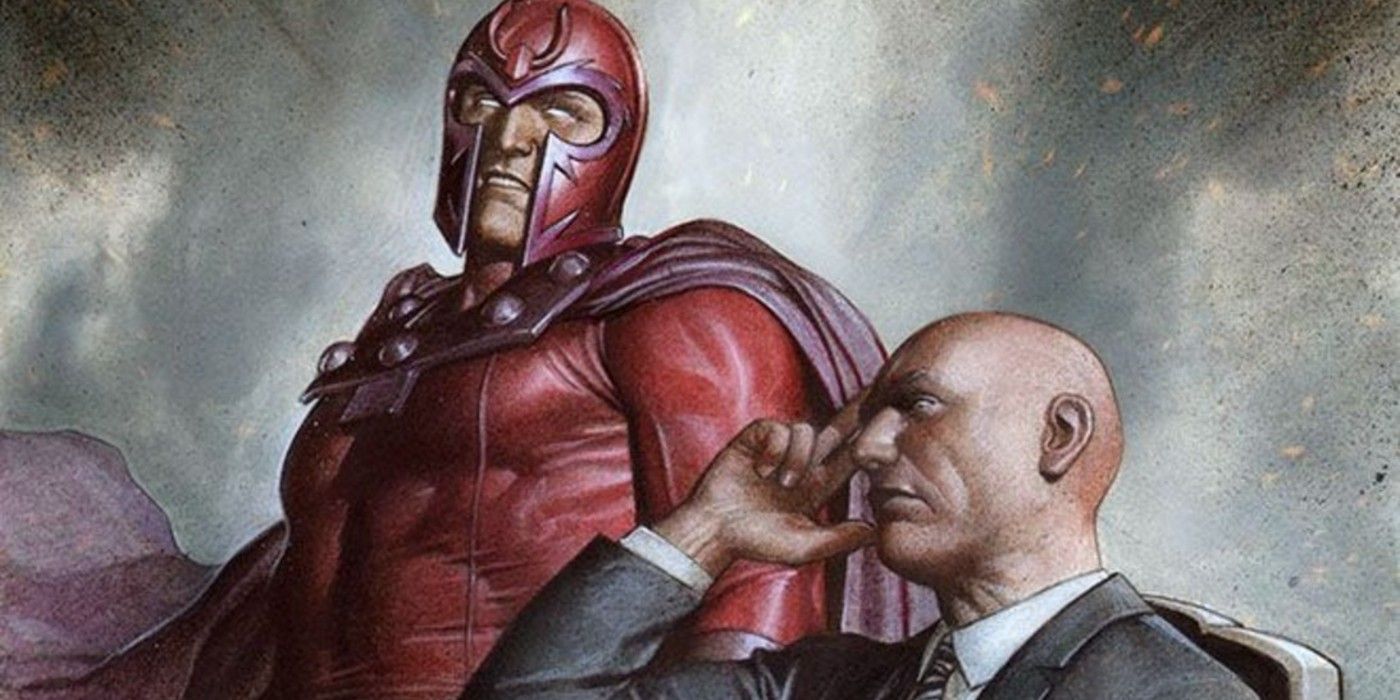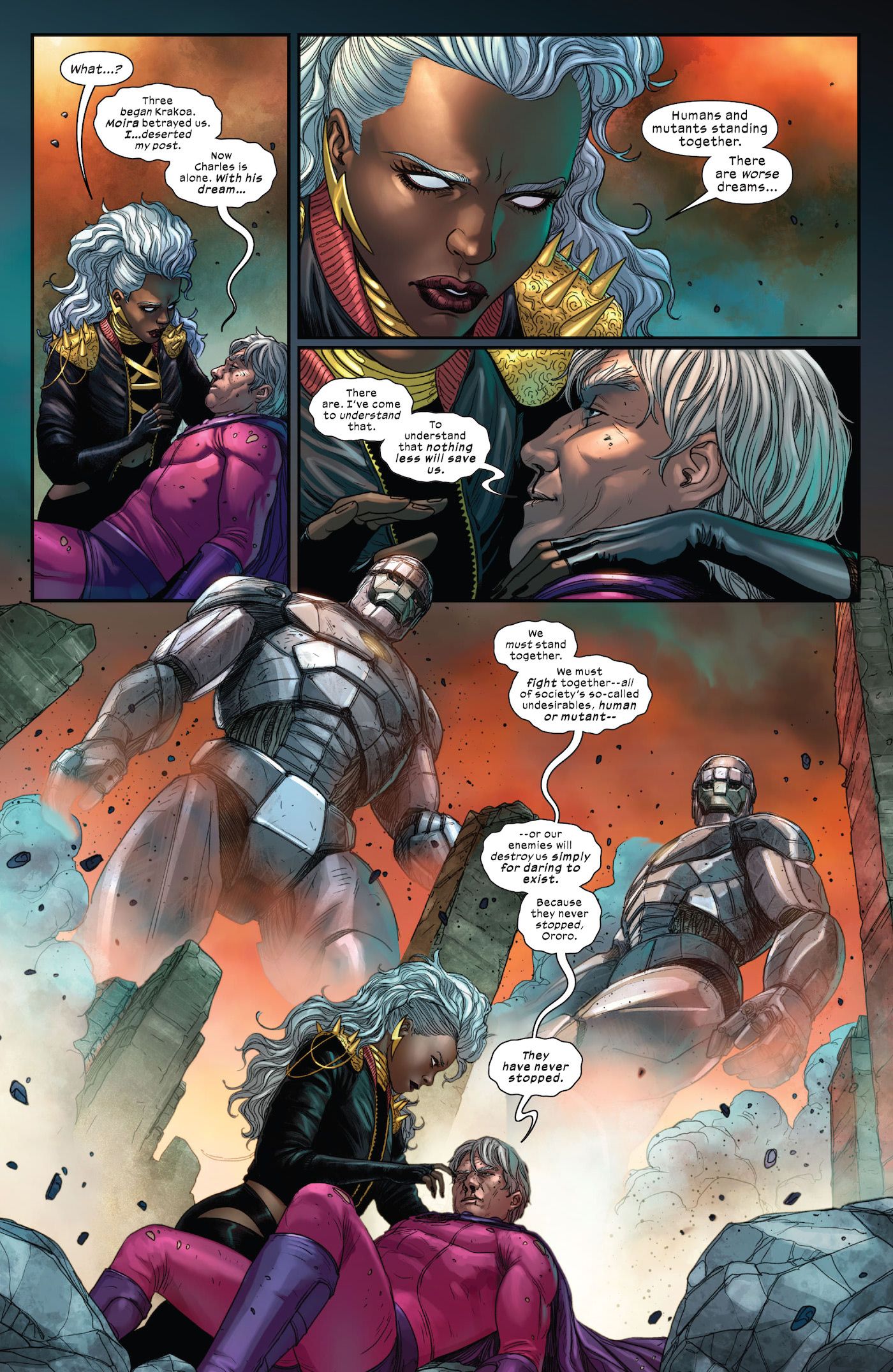This article contains SPOILERS for X-Men Red #7For most of the last 60 years, the X-Men franchise has been defined by a conflict between Professor Charles Xavier and Magneto - a conflict that just ended with Magneto admitting defeat.
Even before the X-Men franchise became an overt metaphor for civil rights and the struggles of minority populations, Xavier and Magneto battled each other for the chance to shape mutantkind's future. Starting in the seminal X-Men #1 by the legendary duo of Stan Lee and Jack Kirby, the two presented contrasting visions: Xavier believed in tolerance, acceptance and coexistence, while Magneto wanted to secure a place for mutantkind by force. Years after Magneto first battled the X-Men, their backstory was fleshed out by subsequent writers, who revealed that Xavier and Magneto used to be friends and allies working together to help mutants before their ideological differences became too great and they parted ways. They've both tried to "convert" the other to their respective philosophy, with Xavier at times adopting a more militaristic stance, while Magneto has joined the X-Men multiple times and even served as Headmaster of the Xavier Institute for a time.
While they've both understood that the other's position has some merit, neither has been willing to fully give up on his stance, leaving them in a decades-long ideological Cold War that seemed to have no end in sight. However, the current Judgment Day event has finally resolved who is in the right, and hopefully for good. X-Men Red #7 by Al Ewing and Stefano Casseli presents an epic conclusion both to the book's current major threat in the form of rogue Eternal Uranos and to the Magneto-Xavier philosophical struggle. Following his attack on the mutants of Arakko, Uranos is finally defeated by the mutants, but this victory costs Magneto his life. In his final minutes, Magneto admits that Xavier's dream was always right, and that he now sees it is the only thing that can save them.
Magneto Finds Redemption In His Dying Moments
While Magneto had already softened his stance tremendously compared to his Silver Age supervillain origins, the Krakoa era has not shown him as particularly penitent or contrite for his previous actions. On the contrary, his first appearance in House of X #1 by Jonathan Hickman and Pepe Larraz sees him address a group of human diplomats by telling them, "You have new gods now," referring to mutantkind. But Krakoa has further tempered the old revolutionary, and a string of successes (like the Hellfire Galas, victory over Amenth and the terraforming of Mars/Arakko) and failures (not being able to resurrect his daughter Anya, not being able to stop Moira's betrayal) have left Magneto in an introspective, contemplative place. Gone is the bombastic super-terrorist, and in his place a wiser, calmer, more understanding old man has slowly emerged.
In the end, Magneto admits that Charles was right: only together can humans and mutants build a better future. With Magneto's change of heart and Apocalypse departing this dimension, mutant supremacy seems like a dead ideology. But this does not mean that Magneto is now a kind-hearted pacifist like Nightcrawler. Even during his heartfelt dying speech to Storm, Magneto notes, "We must fight together - all of society's so-called undesireables, human or mutant - or our enemies will destroy us simply for daring to exist." Erik seems to have kept his will to fight his enemies head on, but expanded his allies to include any and all downtrodden groups, human or mutant. Magneto may be dead for now, but in his final moments he not only saves Arakko, but vindicates Professor Charles Xavier's ideological beliefs.


